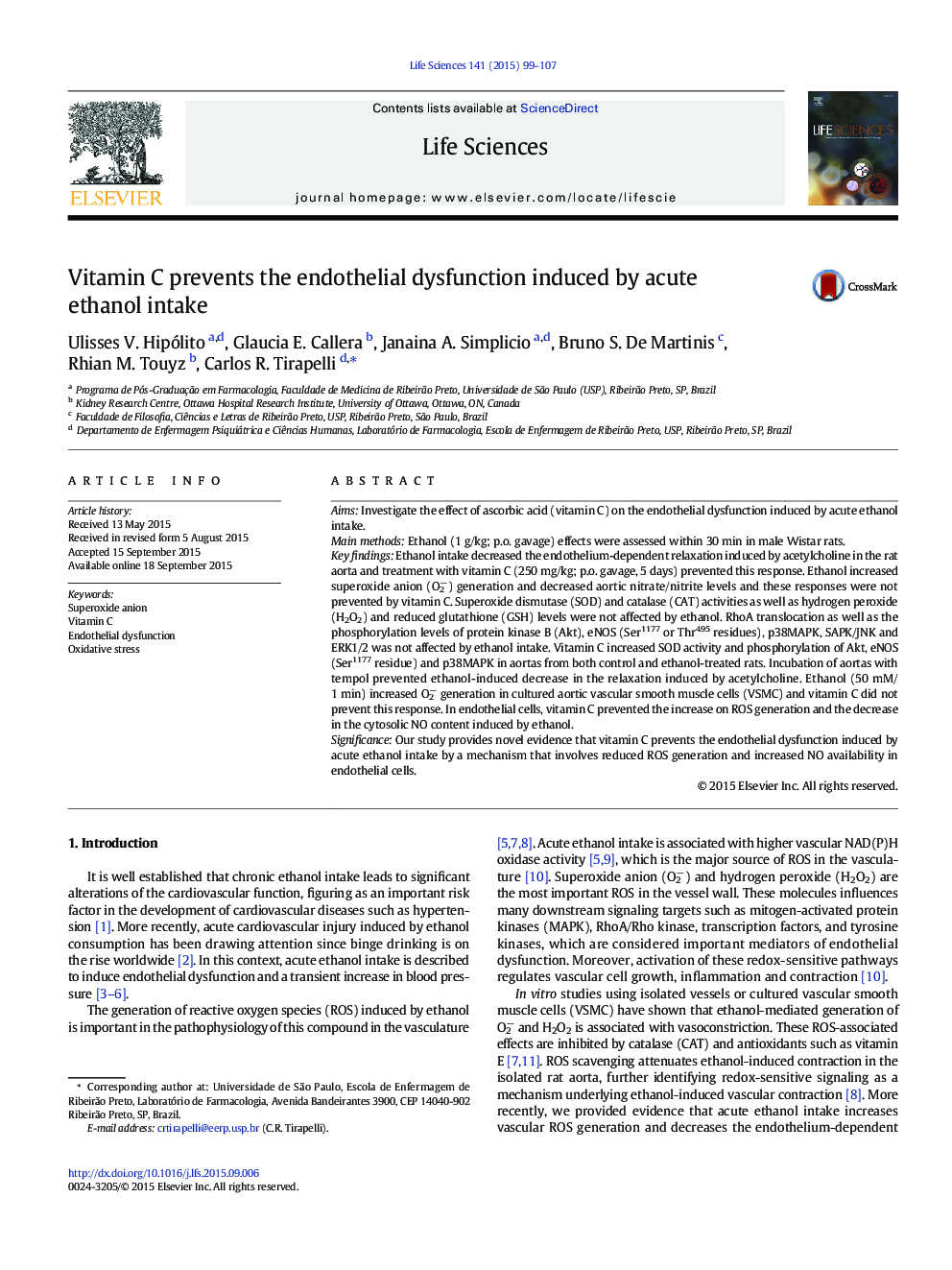| Article ID | Journal | Published Year | Pages | File Type |
|---|---|---|---|---|
| 5841574 | Life Sciences | 2015 | 9 Pages |
AimsInvestigate the effect of ascorbic acid (vitamin C) on the endothelial dysfunction induced by acute ethanol intake.Main methodsEthanol (1Â g/kg; p.o. gavage) effects were assessed within 30Â min in male Wistar rats.Key findingsEthanol intake decreased the endothelium-dependent relaxation induced by acetylcholine in the rat aorta and treatment with vitamin C (250Â mg/kg; p.o. gavage, 5Â days) prevented this response. Ethanol increased superoxide anion (O2â) generation and decreased aortic nitrate/nitrite levels and these responses were not prevented by vitamin C. Superoxide dismutase (SOD) and catalase (CAT) activities as well as hydrogen peroxide (H2O2) and reduced glutathione (GSH) levels were not affected by ethanol. RhoA translocation as well as the phosphorylation levels of protein kinase B (Akt), eNOS (Ser1177 or Thr495 residues), p38MAPK, SAPK/JNK and ERK1/2 was not affected by ethanol intake. Vitamin C increased SOD activity and phosphorylation of Akt, eNOS (Ser1177 residue) and p38MAPK in aortas from both control and ethanol-treated rats. Incubation of aortas with tempol prevented ethanol-induced decrease in the relaxation induced by acetylcholine. Ethanol (50Â mM/1Â min) increased O2â generation in cultured aortic vascular smooth muscle cells (VSMC) and vitamin C did not prevent this response. In endothelial cells, vitamin C prevented the increase on ROS generation and the decrease in the cytosolic NO content induced by ethanol.SignificanceOur study provides novel evidence that vitamin C prevents the endothelial dysfunction induced by acute ethanol intake by a mechanism that involves reduced ROS generation and increased NO availability in endothelial cells.
